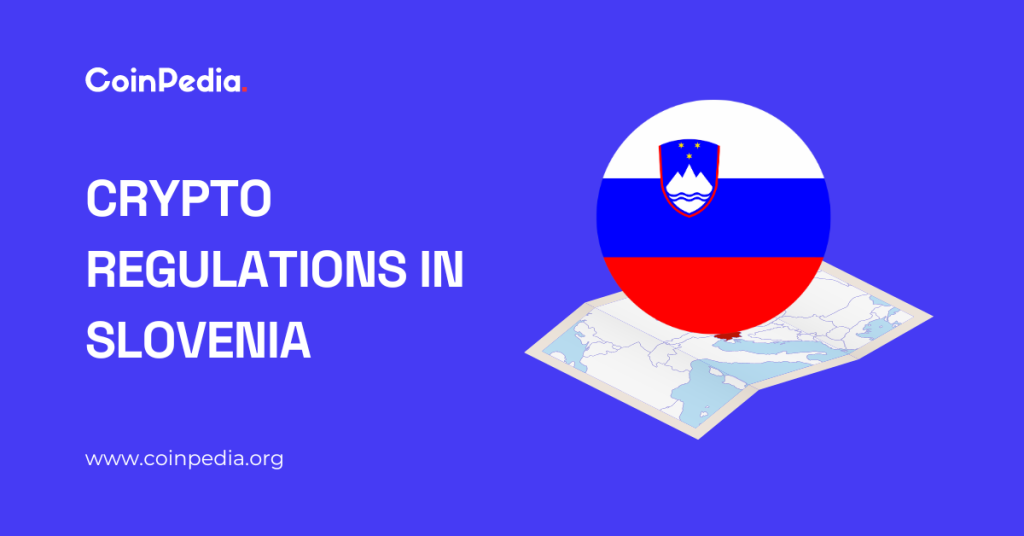Slovenia’s Crypto Rules Tighten in 2025—Will Traders Flee or Adapt?
Slovenia’s financial watchdog just dropped new crypto regulations—and the market’s already buzzing. Here’s what’s changing, who’s sweating, and why your favorite altcoin might be in the crosshairs.
The New Playbook: KYC or GTFO
Anonymous crypto transactions? Gone. The Financial Administration of Slovenia (FSA) now demands full identity checks for every trade over €1,000. Exchanges face steep fines for non-compliance—because nothing says 'innovation' like paperwork.
Tax Man Cometh—With a Vengeance
Capital gains on crypto? Taxed at 25%. Staking rewards? Taxable income. The FSA even wants a cut of your NFT flips. Traders are scrambling for loopholes, but the government’s playing whack-a-mole with decentralized wallets.
Banking Blues: The EUR On-Ramp Shrinks
Local banks now require 'enhanced due diligence' (read: invasive questions) for crypto-related transfers. Some institutions are outright blocking transactions to offshore exchanges. Good luck explaining your Binance deposits to a skeptical teller.
Slovenia’s betting that regulation brings legitimacy—but with Malta and Portugal still rolling out red carpets, will crypto talent vote with their wallets? As one Ljubljana trader put it: 'They want us to pay taxes like we’re running bakeries. We’re building the future—it shouldn’t feel like an audit.'

Slovenia, a small but highly developed European country with a population of 2.1 million, boasts a rich industrial history that has significantly contributed to its robust economy. As the most economically developed Slavic nation, Slovenia has consistently grown since adopting the Euro in 2007. Its openness to innovation has been a key driver of success in the industrial sector, making it a favored destination for crypto enthusiasts. Many believe Slovenia is poised to become a powerful fintech hub in Europe. But does its current crypto regulatory framework support such aspirations?
Let’s explore Slovenia’s crypto regulations and see if they can propel the country to the forefront of the cryptocurrency landscape. My expectation is positive. What’s yours? Before answering, let’s delve deeper.
1. Crypto Regulations in Slovenia: An Overview
Slovenia is renowned for its pro-innovation stance, providing a supportive environment for emerging technologies like blockchain and cryptocurrencies. Under the Act on Payments Services and Systems, cryptocurrencies are classified as VIRTUAL assets rather than financial or monetary instruments.
Regulation of the crypto sector in Slovenia is decentralized. Various authorities manage different aspects of the ecosystem. For instance, the Bank of Slovenia and the Securities Market Agency oversee cryptocurrency transactions to ensure compliance with financial laws, including Anti-Money Laundering (AML) and Anti-Terrorist Financing regulations. The Slovenian Prevention of Money Laundering and Terrorist Financing Act (ZPPDFT-2) incorporates the EU’s 5th Anti-Money Laundering Directive (5MLD) and aligns with the latest FATF recommendations. All virtual currency service providers must register with the Office of the Republic of Slovenia.
2. Crypto Regulations in Slovenia: What’s New?
Several notable developments in Slovenia’s crypto sector occurred this year:
: Slovenia issued a €30 million sovereign digital on-chain bond, the first of its kind in the EU, with a 3.65% return, maturing on November 25, 2024.
: NiceHash announced Slovenia’s first Bitcoin-focused conference, NiceHashX, scheduled for November 8–9 in Maribor.
Thank you @CoinEdition for sharing and spreading the news!
Come and join us at our NiceHashX conference in Maribor Slovenia in November! https://t.co/AM5XNvOVgI
3. Crypto Taxation Framework in Slovenia Explained
Slovenia’s crypto taxation framework provides clear guidelines for both individuals and corporations. According to the Financial Administration of Slovenia, the tax treatment depends on the trader’s status and the nature of the transaction.
- Individuals: Income earned from cryptocurrencies through employment or ongoing business activities is subject to personal income tax. However, capital gains from trading or market fluctuations are exempt from taxation.
- Corporations: Capital gains from cryptocurrency activities are subject to a corporate income tax of 19%. The Value-Added Tax (VAT) generally applies at a rate of 22%, although cryptocurrency transactions considered means of payment are exempt from VAT. Companies are not allowed to restrict payment methods to cryptocurrencies alone. Tokens issued during ICOs must follow standard accounting rules and the Law on Corporation Tax.
4. Crypto Mining in Slovenia: What You Should Know
Crypto mining is unrestricted in Slovenia, but income from mining is considered business income and is therefore taxable. This includes rewards from validating transactions and any additional income from mining operations. Both individuals and legal entities must comply with Slovenian tax regulations.
5. Timeline of the Evolution of Crypto Regulations in Slovenia
Here is a timeline highlighting the evolution of crypto regulations in Slovenia:
- 2023: The EU adopted the Markets in Crypto-Assets Regulation (MiCA), establishing a uniform regulatory framework for crypto-assets, their issuers, and service providers across the EU
- 2017: The Financial Administration of Slovenia provided more detailed guidelines on cryptocurrency taxation, based on factors such as the trader’s status and the type of transaction.
- 2013: The Slovenian Financial Administration issued guidelines stating that income from cryptocurrency transactions should be taxed.
Endnote
Slovenia’s approach to the crypto sector is commendable, reflecting its optimistic view of the future of cryptocurrencies. The country’s balanced regulatory framework supports crypto innovation while protecting user rights and preventing illegal activities. Recent developments show Slovenia’s commitment to continually improving its regulatory environment. Slovenia’s crypto regulation framework sets a positive example for other nations navigating the evolving crypto landscape.
Never Miss a Beat in the Crypto World!Stay ahead with breaking news, expert analysis, and real-time updates on the latest trends in Bitcoin, altcoins, DeFi, NFTs, and more.


